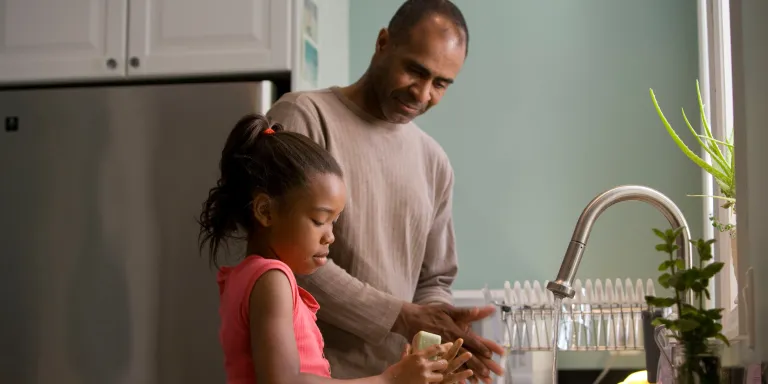
This blog was authored by Rosel Jackson Stern, a journalist and artist whose work primarily covers culture, politics and art. This blog expresses their personal perspective on how to support your child in exploring their gender identity.
My nonbinary gender and queerness have never been exhaustive. They don’t encompass the entirety of my being but hold constituent parts of what’s always been true about me. In this sense, I didn’t have a coming out but rather, as youth worker Tanya Compass put it, a process of letting people in — a discovery of myself and the value of my queerness. This was facilitated by peers and caretakers who allowed me to explore my identity freely growing up.
The transphobia of children's fantasy authors, politicians and journalists aside, how we can affirm queer kids in their identities from an early age? How can we give them room to work out their gender expression with tenderness and care, rather than shame and fear of rejection?
If your child chooses to discuss their identity with you, ask: ‘What does that mean for you?
The reality of the internet, playgrounds and classrooms means that kids have a lot of exposure to narratives about queer identities. If they chose to come out or adopt a particular identity marker, it can be useful to get clear about what those mean. Letting kids know that you’re interested and want to have a deeper conversation about how to love them best as a parent makes a world of difference.
Coming out is by no means the apex of queer experience. What happens after, the nature of the love we receive, is far more important. If a child chooses to share their identity with you, they're letting you know something valuable about themselves. Parents, teachers or guardians are in a great position to treat such information with grace and care. Ask things like: “How can I support you?” or “What do you need from me?” and be open to your child's response.
We live in a world obsessed with the gender binary, but you can advocate for them in it.
Kids have to navigate a gendered world from an early age. Whether this be gendered toilets, changing rooms and uniforms, taking an interest in how this affects your child is vital. Being forced to choose whether you’re a boy or a girl can be upsetting to young people who haven’t figured it out and might never decide conclusively on one category. Have conversations with the other adults in your child's life about how you can accommodate your kid's gender identity.
As a parent of a queer child, you cannot always protect them from the pain of living in a world where a lot of our public and private spaces are divided into boy/girl, also known as the gender binary. You cannot always protect them from misgendering, teasing or even the disproportionately high rates of bullying LGBTQ+ young people experience in school. However, you can help them internalise their own inherent value by letting them know you see it too. Advocating for your child in this way will help them see that you have their back, even when institutions and peers do not.
Gender is fluid. You can help your child explore it by remaining open to different pronouns like he/him, she/her or they/them.
Children have an uncanny ability to know who they are and what they want. One of the ways to listen in to what a child's gender desires might be is to note how they want to be referred to. What clothing, name or adjective makes them smile? These are things all caring adults around a kid take note of and gender expression doesn’t need to be an exception in that regard. Similar to coming out, pronouns by no means exclusively determine trans experience but they can facilitate a deeper conversation about your child's truest expression of self.
Do your homework.
It’s ok not to know things. In fact, the more we embrace the gaps in our knowledge the more open we’ll be to learning something new. Resources like the podcast How To Be A Girl hosted by a mother and their transchild and BBC Sound’s Pride & Joy talk specifically about queer parenting. Alok Vaid Menon’s new book Beyond The Gender Binary , Travis Alabanza’s play Burgerz and No Tea, No Shade by E.Patrick Johnson are all useful starting points for exploring gender at its intersections.
Parents, by definition, are in a powerful position to cultivate self-acceptance at home, in school and in the world. Even if the child in your life is comfortable with the gender they were assigned at birth, what does it look like to care about somebody else’s kids as much as you care about your own? If we embrace difference and do the work to fill them and approach their kids with openness, parents can cultivate a space where their child’s queerness is celebrated for the gift that it is.
